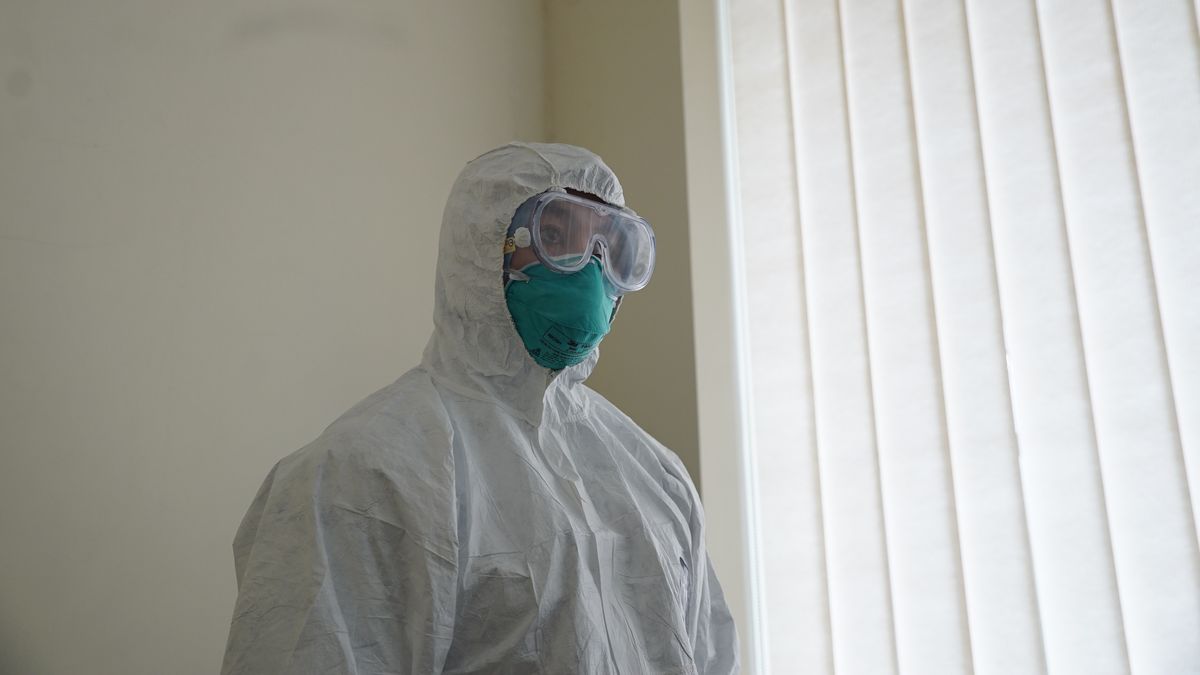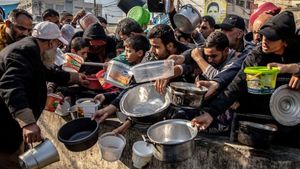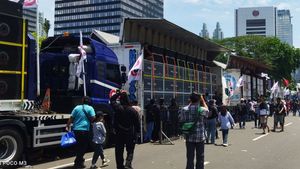JAKARTA - Health workers are one of the figures experiencing mental fatigue or burnout amid the current COVID-19 pandemic.
Then what are the recommendations to reduce their risk of burnout symptoms?
Head of the Research Team from the FKUI MKK Study Program, Dr. dr. Dewi S Soemarko suggested that health workers should know whether the current condition has burnout or not.
"We need to understand what the symptoms are. Sometimes because we are busy at work, we don't realize that we have burnout. So we need to support each other between health workers," he said in a virtual FKUI conference, reported by Antara, Friday, September 4.
Burnout is a syndrome that results from a chronic response to stressors or workplace conflicts and this disease is included in the clinical diagnosis.
This condition can be identified from its symptoms, namely emotional exhaustion, loss of empathy and loss of self-confidence. Emotional exhaustion is characterized by feeling so tired that you don't want to do anything. Meanwhile, the loss of empathy is indicated by not wanting to participate in making any decisions.
"Losing empathy, so whatever. This in our opinion is a bit dangerous. Then he lost his self-confidence. He might feel a lot of chin causing a decline in performance," said Dewi.
On the other hand, it is necessary to have adequate facilities and infrastructure, especially for handling COVID-19 in health facilities and setting work schedules for health workers.
"Setting the work schedule for health workers is very important because this indirectly affects the mental health of health workers," said Dewi.
Psychosocial support during the COVID-19 pandemic has also become important for medical personnel, one of which is in the form of psychological assistance.
Meanwhile, health professional associations also need to take part here, namely providing education related to symptoms of burnout, providing support groups for their members and helping with psychological counseling.
"For the government, if possible we have a map of medical personnel. The goal is for early detection, once you enter moderate symptoms, it means you must be helped immediately. Do not get into a severe level. We hope the government can facilitate psychological counseling services, especially for health workers. "said Dewi.
This recommendation is based on a survey conducted by Dewi and a team from the Master of Occupational Medicine (MKK) study program, Faculty of Medicine, University of Indonesia (FKUI) 2020 on 1461 health workers in all provinces of Indonesia.
They found that as many as 82 percent of participants experienced moderate burnout, 1 percent severe and 17 percent mild burnout.
"Factors on the type of work and how to work to deal with COVID-19 are related to symptoms of burnout and health workers during the COVID-19 pandemic have to deal with symptoms of burnout, they must help each other so that we can deal with this problem," said Dewi.
The English, Chinese, Japanese, Arabic, and French versions are automatically generated by the AI. So there may still be inaccuracies in translating, please always see Indonesian as our main language. (system supported by DigitalSiber.id)









